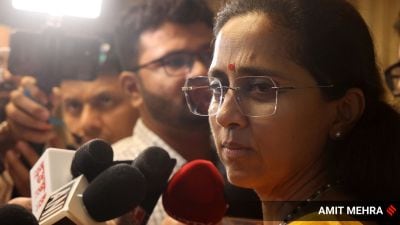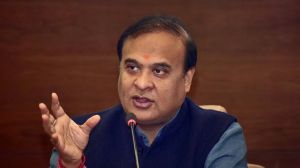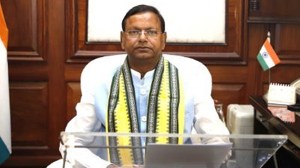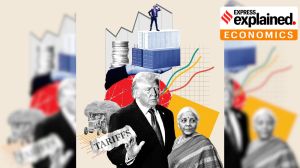A blow for reforms
Purists may condemn the government for agreeing to defer the privatisation of the UP State Electricity Board's UPSEB distribution networ...

Purists may condemn the government for agreeing to defer the privatisation of the UP State Electricity Board8217;s UPSEB distribution network for a year, and argue that this was a sign of weakness. Indeed, it may be so, but that8217;s quibbling. The larger point, and the government deserves to be congratulated for this, is that it has got the striking workers to agree to the principle of trifurcation of the UPSEB.
Once the board was trifurcated, the logic was it would be easier to be able to isolate, and then resolve, the reasons for UPSEB8217;s poor performance acirc;euro;ldquo; each division, the generating and the distribution ones, would then be individually accountable, and unable to pass the buck to the other one. This has now been accomplished, and how important this is can be seen from the fact that the UPSEB was one of the worst-run SEBs in the country 8212; so professionalising, and later privatising. The deferment of privatisation by an year is not an open-ended offer.
The workers and the management of all divisions ofthe erstwhile UPSEB will have to demonstrate, in this period, that their performance has improved so much that privatisation is not needed anymore. That means, over the next year, the generating units will have to increase efficiency, and the transmission and billing units will have to show a dramatic increase in the collection of bills.
So, from the 40 per cent of power that is not billed for each year at the moment, the quot;theft and dacoityquot; losses will have to start showing a visible decline. The argument made here is that while the collections will improve immediately, this will be temporary. That is, anxious to stave off privatisation, the crooked sections of workers/management will ask industrialists who consume the stolen power to pay up a bit more, but once privatisation is staved off, they8217;ll revert to the old ways. That, however, is a non-argument. For one, once the billing and collections improve, it will be very difficult for the UPSEB to justify lower collections in the future. And, in anycase, the government hasn8217;t agreed to put off privatisation, but just deferred it.
The decision to privatise Indian Airlines and sell off Modern Foods to Hindustan Lever is, similarly, a sign that the government is back strongly on the reforms track. As has been pointed out on various occasions in the past, the government has no business running airlines or bakeries. The problem, however, has always been that despite agreeing to the principle, nothing practical got implemented.
The first talk of selling off Modern Foods, for instance, actually took place three years ago, when P. Chidambaram was the Finance Minister. And, as this newspaper reported just some days back, the government spends around Rs 1,000 crore annually in paying wages to workers of sick public sector units which are closed, but which it doesn8217;t have the political guts to shut down. That, of course, just shows that the road ahead is very long, and bumpy. It shouldn8217;t detract from the fact that Vajpayee8217;s government has done a great jobin not capitulating to what was perhaps the biggest combined strike, including a lakh pork workers across the country, in recent times. Three cheers.
- 01
- 02
- 03
- 04
- 05































